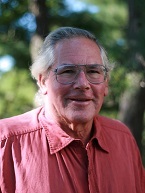
A moral right to health or, more narrowly, health care, within a society (governed by a state) is a special case of a right to fair equality of opportunity. To specify the entitlements that come with such a right there should be a fair, deliberative process, such as accountability for reasonableness. Such a process informs resource allocation. A society is thus assumed to be capable of implementing such a process and raising the resources need to deliver the services involved in the entitlements of a moral right to health or health care.
To claim such a moral right globally (across national borders) requires improvements of global governance adequate to carry out the function of a fair process in specifying the entitlements of such a right and the function of raising the resources necessary to meet those entitlements. The lecture will consider whether such capabilities of global governance are feasible. The argument is that it is improbable that we can solve the coordination problem involved if we assume a world of nation-states, such as we have now. If such capabilities are unlikely to be realized, then we probably cannot achieve what is practically necessary for us to claim a global right to health or health care.
Datum
19. Oktober 2015
Zeit
18.00 Uhr s.t.- 19.30 Uhr
Ort
Universität zu Köln
Albertus-Magnus-Platz
50923 Köln

Norman Daniels is Mary B. Saltonstall Professor and Professor of Ethics and Population Health at Harvard School of Public Health. He is one of the leading experts world-wide in the field of the philosophy of science, ethics, political and social philosophy and medical ethics and has published over 150 articles in anthologies and numerous internationally high-ranking journals such as Isis, Philosophy of Science, Journal of Philosophy, Philosophical Review, Ethics, Philosophy and Public Affairs, Journal of Political Philosophy, Journal of Medicine and Philosophy, Bioethics, AJOB, JAMA,
New England Journal of Medicine, British Medical Journal, Lancet, Hastings Center Report, Health Affairs, Nature Medicine, WHO Bulletin and others.
His books include Just Health Care (Cambridge, 1985); From Chance to Choice: Genetics and Justice (Cambridge, 2000; with Bruce Kennedy and Ichiro Kawachi); Is Inequality Bad for Health? (Beacon Press, 2000); and Setting Limits Fairly: Can We Learn to Share Medical Resources? (Oxford, 2002; 2nd edition 2008; with James Sabin). His Just Health: Meeting Health Needs Fairly (CUP, 2008) is a sequel to Just Health Care and integrates his work into a comprehensive theory of justice for health. His current research focuses on adapting the "benchmarks of fairness" for use in less developed countries (WHO Bulletin, 2000, 2005), and developing fair process for priority and limit setting decisions about
resource allocation in various settings, including the new Mexican health insurance plan (Health Affairs 2003, Lancet 2005).
A member of the Institute of Medicine, a Fellow of the Hastings Center, a Founding Member of the National Academy of Social Insurance and of the International Society for Equity in Health, he has consulted with organizations, commissions, and governments in the U.S. and abroad on issues of justice and health policy, including for the United Nations, WHO, and the President's Commission for the Study of Ethical Problems in Medicine.
To find out more about our Expert visit his personal homepage at Harvard School of Public Health.